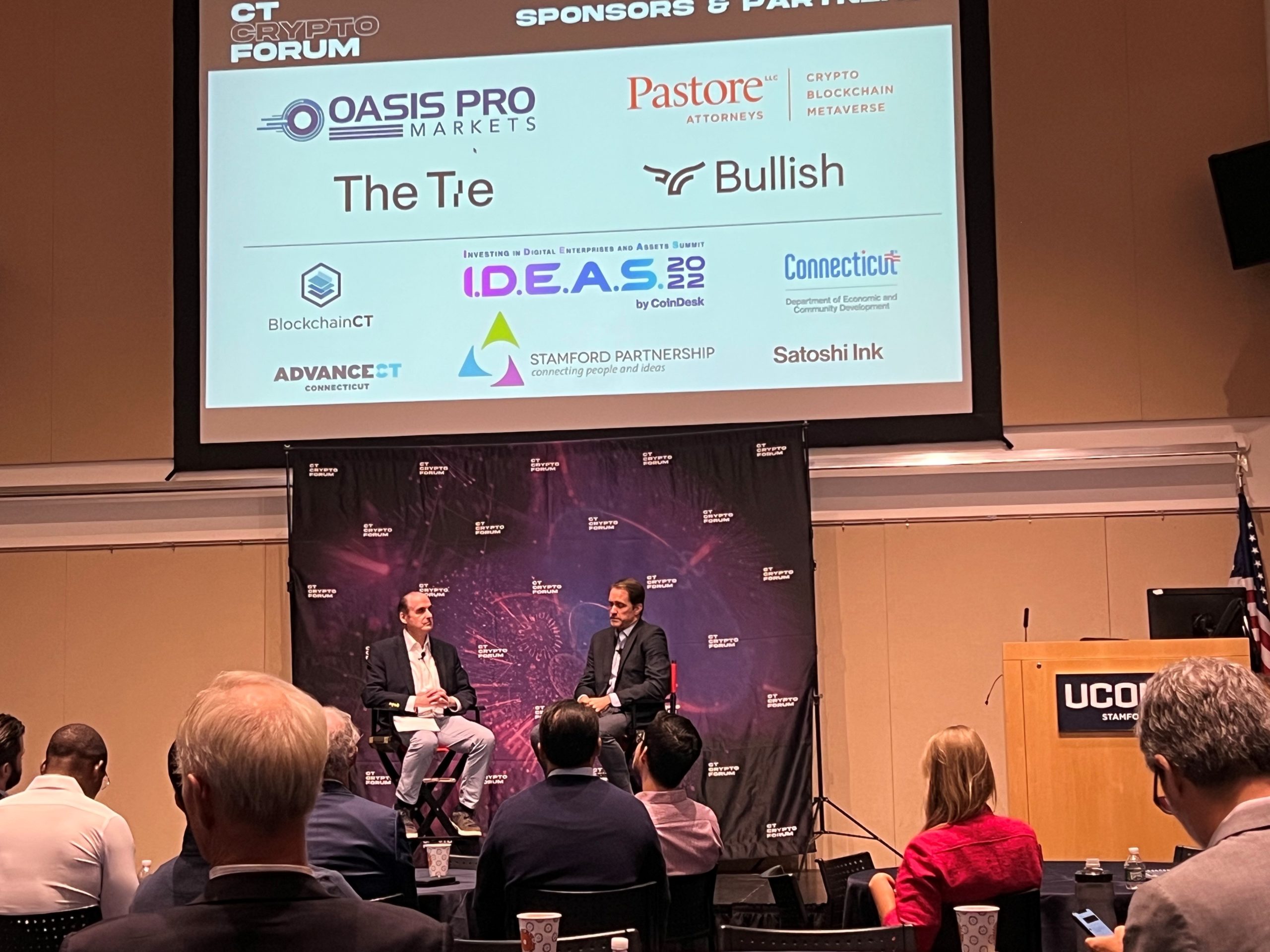On September 23, the Connecticut Crypto Forum (the “Forum”) held an event at the University of Connecticut at Stamford. The Forum connects large and sophisticated capital pools with leading players and thinkers across the crypto, defi and Web 3.0 markets to strengthen investor knowledge, understanding and skill. Pastore LLC is proudly a Founder and Sponsor of the Connecticut Crypto Forum. The Forum’s September 23 event was an invite-only session.
In the first half of the event, a panel of speakers discussed the current maturity of the crypto and blockchain markets. The panel addressed the current challenges facing the evolving asset class and concluded that crypto/blockchain assets are still “metaphorically” in their teenage years. The asset class still is characterized by volatility. Moreover, the panelists noted the time of hyper valuation of projects in the industry is over. What follows now is a time of acquisitions. Many companies and projects will likely fail, but the ones with worthwhile technology that lack sufficient cashflows to continue operation will likely be consolidated within larger players and ultimately be poised to make the industry more efficient. However, the panelists agreed that the industry’s best days are ahead of it.
During the second half of the event, Pastore LLC’s Managing Partner, Christopher Kelly, led a discussion with Congressman Jim Himes, an emerging leader in the crypto/blockchain industry on Capitol Hill. Congressman Himes noted the significant attention that crypto and blockchain assets have received in Congress. He noted that he is working with other members of Congress on legislation concerning the industry.
When a member of the crowd asked what should businesses do considering the lack of legal and regulatory clarity surrounding crypto assets, Mr. Kelly gave a poignant response: Don’t be afraid, be transparent and work with counsel to navigate the murky regulatory waters. Pastore, as a thought leader in the field, is positioned to help businesses and individuals plan a path forward despite the uncertainty.





